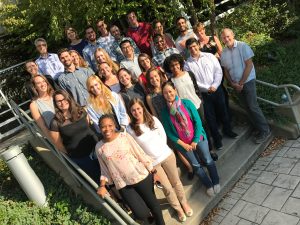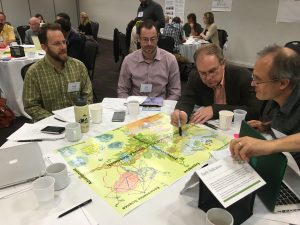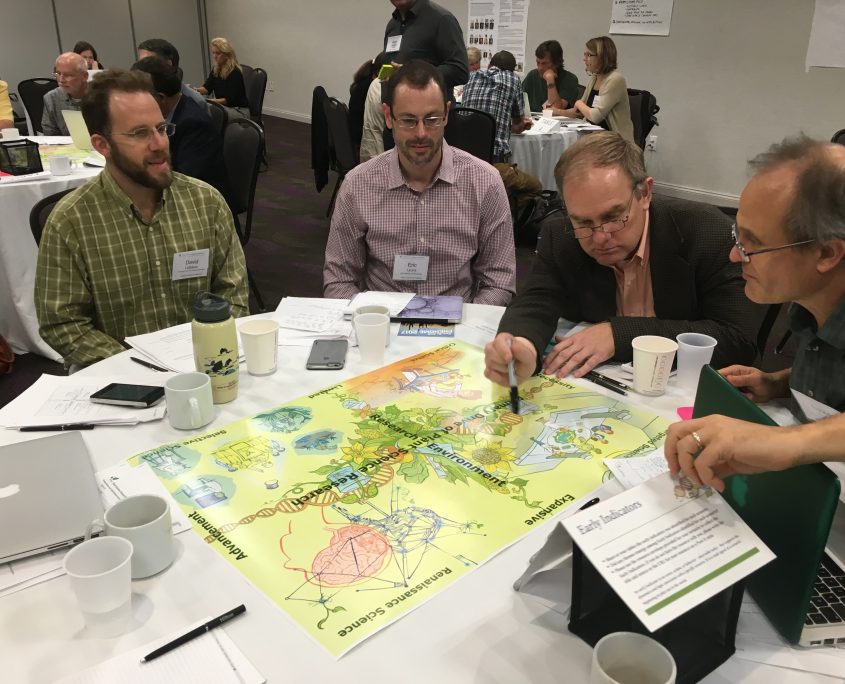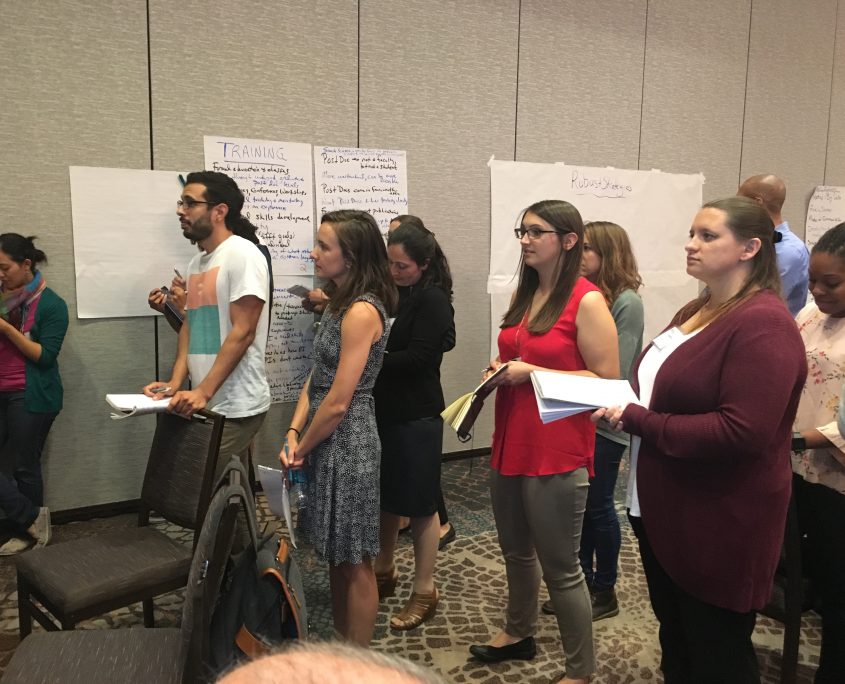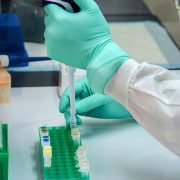Plant scientists call for renewed focus on empowerment of trainees
Preparing graduate students and postdocs for diverse careers
Changes in the workforce are challenging academia to prepare scientists to be adaptable and adept at communicating across boundaries. To meet these demands, the Plant Science Research Network (PSRN, plantae.org/PSRN) is shifting the focus to enable trainees to take ownership of their training experiences.
“Since President Lincoln established the Land Grant Institutions to train generations of plant scientists, we have done exactly that using essentially a single model,” said Alan Jones, American Society of Plant Biologists (ASPB) President 2013 – 2014. “However, in the last 40 years, plant science interpreted in its broadest terms has greatly matured and recent generations of singularly-trained students have struggled to adapt to the multifaceted core of what this science now entails.”
Reinventing Postgraduate Training in the Plant Sciences details the outcomes from two strategic planning workshops held in October 2016 and September 2017, which used the Imagining Science in 2035 scenarios to identify robust approaches to guide postgraduate training in the plant sciences over the next 20 years. Attendees of the first workshop consisted of industry scientists, academic faculty, and senior university administrators, whereas the second workshop featured early career trainees.
Read the Report: Download Reinventing Postgraduate Training (PDF)
“The PSRN has done an excellent job outlining new ways for higher education to better facilitate a holistic approach to learning that reflects both public and private sector needs as we strive to meet the challenges of the future,” said Michael Kantar, 2018-2019 AAAS Leshner Fellow and Assistant Professor at the University of Hawaii at Manoa.
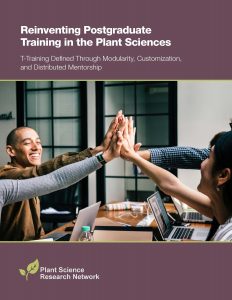
Reinventing Postgraduate Training in the Plant Sciences: T-Training Defined Through Modularity, Customization, and Distributed Mentorship.
Despite the demographic differences between the two sets of workshop attendees, both prioritize trainee empowerment as embodied in five key principles: (1) prioritization and support of diversity, inclusion, and trainee well-being; (2) guidance and resources to define and pursue career adjectives; (3) flexible learning, unconstrained by boundaries; (4) disciplinary mastery achieved through research experiences; and (5) community engagement through science communication. The PSRN conceptualizes training as a network of combined and sequenced paths throughout one’s academic career in preparation for a variety of professional destinations.
“Kudos to the PSRN for incorporating the ideas, insights and advice from a wide variety of stakeholders in their remarkably easy-to-read document Reinventing Postgraduate Training,” said Mary Crowe, Council on Undergraduate Research President 2012-2013. “This forward thinking roadmap charts the current and future educational needs of plant scientists.”
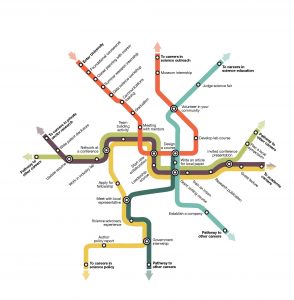
Pathways to Diverse Careers. “Figure 5 is especially effective in communicating how diverse students will be navigating and using their educational pathways to contribute to the fields for years to come,” Mary Crowe, CUR President 2012-2013.
To foster this cultural shift, the PSRN calls for a two-stage implementation process. Phase One: the immediate intent is to initiate pilot programs of new support mechanisms for trainees. Phase Two: incentivize the broad adoption of the successful and impactful programs. Pilot programs were developed during the second workshop by the students and postdocs to address eight critical areas with room for improvement. The PSRN is actively looking for partners to test pilots related to diversity and inclusion, science communication, and academia-industry interactions.
“One thing I would like to see is finding ways where pilot programs can be funded, tested, and if successful, seeing how the program can be implemented elsewhere,” said Irene Liao, Duke University graduate student and workshop participant.
“The skillset for each student will need to be more multifaceted, data management- capable, and cognizant of the linkage between scientific discovery and its application. Scientists must now be trained to understand and integrate with a much wider part of the policy, communication and entrepreneurial landscapes than they have in the past,” said Sally Mackenzie, ASPB President 2016 – 2017. “I don’t see how this happens without meaningful collaboration between federal agencies, the US academic community and philanthropic and commercial entities.”
The report, Reinventing Postgraduate Training in the Plant Sciences: T-Training Defined Through Modularity, Customization, and Distributed Mentorship, was published online on August 6, 2018. Members of the community can read the report and leave comments on the Plantae community page at plantae.org/PSRN-Training.
The PSRN seeks broad participation from the plant science community and will be open to any interested scientific professional associations and stakeholders. To get involved, or for further information, contact the PSRN Executive Coordinator, Natalie Henkhaus at [email protected]. The Plant Science Research Network receives funding from National Science Foundation award #IOS-1514765.



